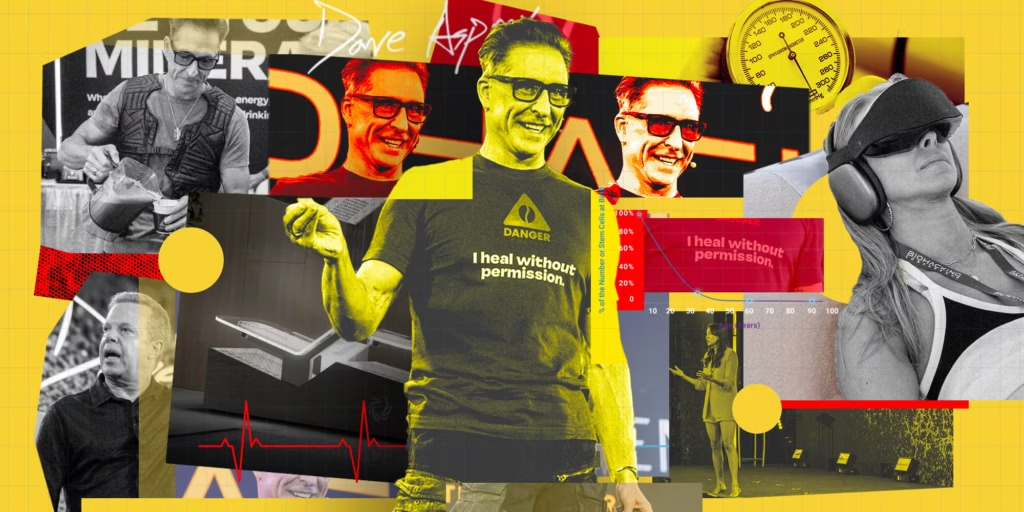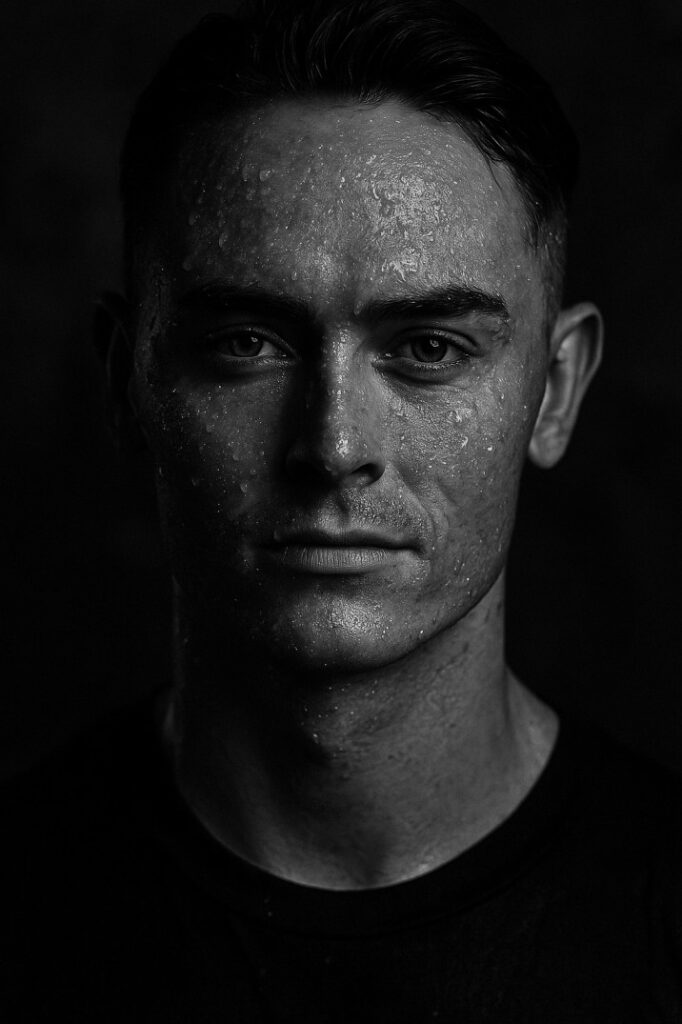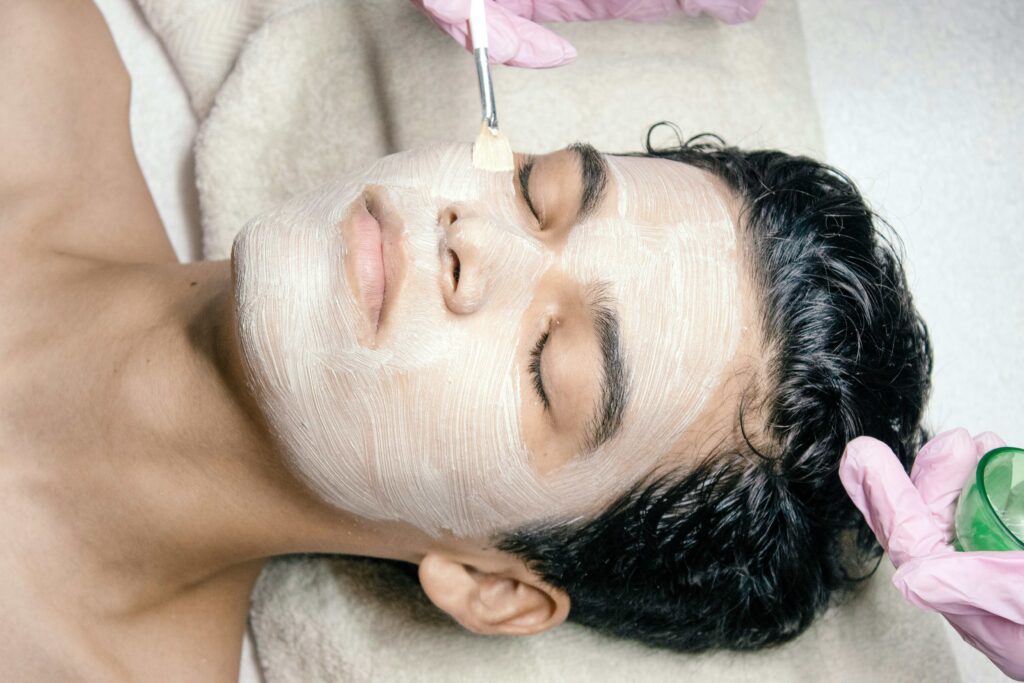Whether you’re intending to make a dry start to the year or simply want to make some strategic cutbacks, deploy these tips to put a cork in stress and keep your spirits up at the end of a (very) long day.
1. Make Time To Vent
Office drinks play an important role in helping you decompress, says Dru Jaeger, co-founder of the mindful drinking group Club Soda. Deprive yourself of a chance to vent and frustration will build up. Start an after-work run club instead; set up a WhatsApp chat so you can coordinate plans (and despair about the latest budget cuts while you’re there). As well as an opportunity to offload, it’ll provide a reason to shut your laptop on time.

2. See The Green Light
An active ingredient in green tea, L-theanine has a similar effect on the brain to alcohol. It influences neurotransmitters, leading to a temporary reduction in stress and anxiety, which kicks in within 30 minutes to an hour, and may even promote good sleep. Brew a couple of decaf teabags overnight, then serve chilled with ice and a squeeze of lemon (this improves absorption).

3. Enjoy Some Funny Business
Laughter might not be the best medicine – but it could be the new meditation. According to Loma Linda University, a good LOL produces gamma waves, the same high-frequency brainwaves produced when you’re omming and ahhing. In fact, even the anticipation of a laugh can reduce our stress hormones. An expertly crafted comedy special is your tonic, no gin required.

4. Become A Solo Cinephile
Many people have misgivings about going out alone. According the Journal of Consumer Research, people are less confident engaging in hedonic (fun) activities alone than they are utilitarian (boring but useful) ones. However, researchers found when we do immerse ourselves in a film or art exhibition solo, it benefits mental wellbeing. You have better taste than your friends, anyway.
5. Find Your Calm
Alcohol fuels anxious thoughts by disrupting neurotransmitters, leading to next-day paranoia. “Meditation can help you find perspective,” says Jaeger. Simon Chapple, author of The Sober Survival Guide, recommends the Calm app, with its anti-stress plans, and Insight Timer for more than 100k guided meditations.
6. Remix Your Schedule
Most people have a predictable drinking routine, so note down the moments when you’re most likely to reach for a glass, says Jaeger. Always end up at the pub when you cross paths with a certain colleague? Pre-book a meal or gym class on those days. Do you cap off your Sunday 10k with a beer? Head out earlier and reroute to a cafe instead. It’ll spare you the added stress of practising self-control.
7. Do The Write Thing
Stuck in a loop of rumination and overanalysis? “Instead of reaching for a drink, reach for a pen,” says Freddie Bennett, addict turned ultrarunner and host of Over The Influence podcast. “Scribble non-stop for 10 minutes. No plan, no strategy. You’ll get all that random shit out of your head and maybe discover why you were anxious in the first place.” And unlike a confidant at the office Christmas party, a journal won’t remind you what you let slip tomorrow.

8- 10. Prop Up The Barbell
Exercise is an obvious way to decompress. “I recommend jumping jacks to people when they’re experiencing cravings,” says Chapple. But of course what works for one man won’t necessarily work for the next. Our (former) drinker’s guide can help:
If your social life centres on the pub… sign up with a club or sports team
Trail running? Fencing? Five-a-side? Wherever your interests lie, don’t do it alone. “I joined a local running club,” says Chapple. “It enabled me to meet new friends, as well as keeping me accountable.”
If you just want to zone out for a bit… try low-intensity cardio or yoga
Working out for 30 minutes at 40 per cent of your max reduces levels of the stress hormone cortisol in healthy men, reports the University of North Carolina. A meditative run or ride will help you to decompress.
If you drink to forget (how stressed you are)… try boxing or CrossFit
“More vigorous exercise often works better,” says Chapple; it delivers the endorphin equivalent of overproof rum.The University of New England found that high-intensity training is, weirdly, a very good way to avoid burnout.
11. Have A Soak
Try a different kind of liquid refreshment. When researchers at the University of Freiburg in Germany assigned people with depressive symptoms to either soak in warm water for half an hour and then wrap themselves in blankets, or do 40-45 minutes of aerobic exercise, those taking regular baths fared better. Add sleep-inducing magnesium salts. It’ll knock you out faster than your third glass of Shiraz.

12. Switch Off Sooner
Nothing good happens after midnight, as the saying goes. On weekdays, the same might be said of 9pm. When in doubt, turn in early. You don’t need to go the ‘full Wahlberg’ with your schedule, but by shifting your sleep-wake times to 9.30pm to 5.30am, you free up your mornings for stuff you actually plan to do – mastering a muscle-up, repainting the bathroom – and your nights for, well . . . sleeping.
13. Go Back To The Eighties
Nostalgia is a powerful intoxicant; a study in the journal Emotion found it made subjects perceive air temperature as warmer and more comfortable. Rewatching favourite movies also provides “emotional regulation”, report American University researchers, delivering the soothing satisfaction of killer quips without the uncertainty of an unknown narrative. Revisit Arnie’s oeuvre.

14. Find Your Flow
Being ‘in the zone’ is a biological phenomenon, in which breathing deepens, heart rate slows and dopamine is released. “The key is finding what really lights you up,” says Chapple. “I ask people to reflect on when they were a child and what activities would cause them to lose track of time because they had become so immersed.” That might be anything from practising guitar to sketching or honing your handstand.
15. Give Yourself Goosebumps
That chill you feel at the crescendo of a favourite song is a sign that your brain is pumping out the pleasure chemical dopamine, which is also released by alcohol. A spine-tingling song can lift our levels by 9 per cent, reports Nature Neuroscience, while tapping into your body’s awe response – proven to elevate wellbeing. It also provides a valid reason to upgrade your sound system.

16-19. Restock Your Fridge
Kicking back with a cold one is a stress-busting ritual in its own right: a Journal of Consumer Psychology study found that people experiencing heated emotions such as anger or frustration feel calmer when holding a chilled glass. Fill yours with one of these low-to-no-alcohol thirst-quenchers:
1.Hawkesbury Brewing Co.Prohibition Pale Ale: A bright, full bodied ale with citrus characters and a tropical finish.
2.Sobah Lemon Aspen Pilsner: Based on a Czech pale ale, this tasty drop is rich in vitamins A and C.
3. Remedy Kombucha Ginger Lemon: A no-sugar, guilt-free take on ginger beer.
4. Naked Life Virgin Margarita: Crafted with Tahitian Lime and Murray River sea salt for a tart, citrusy margarita.
20. Elevate Your Meal Prep
Despite what Kitchen Nightmares might suggest, sharpening your culinary skills can be therapeutic. A study in the Journal of Positive Psychology found that people who frequently take on small, creative challenges – such as testing out a new recipe – feel more content and relaxed. Not feeling it tonight? Shake off lard with a shake instead. Try Bioslim VLCD Shake SlimBiome for a quick protein hit (bioslim.net.au)
21. Adapt And Thrive
‘Adaptogen’ is one of the latest buzzwords in supplements, referring to herbs that bolster your resistance to everyday stresses. Two of the most common are rhodiola rosea and ashwagandha. The former has been linked to reductions in mental fatigue and burnout; the latter is believed to have an anti-anxiety effect. They also work well together, so look for supps that pack both.

22. Get Your Hands Dirty
A plant-based lifestyle has benefits – gardening, we mean. According to a study from Chiba University in Japan, simply looking at flowers reduces blood pressure and heart rate, while lowering levels of oxyhaemoglobin in the brain’s prefrontal cortex, which induces relaxation. Better still, studies show that exposure to harmless mud bacteria called mycobacterium vaccae has an antidepressant effect.
23. …Or Just Go To The Pub
“You’re taking a break from alcohol, not from life,” says Bennett. Tempted by a night out? He advises calling venues ahead to talk through their non-alcoholic options. Anticipating potential problems will stop you making an impulsive decision under pressure. It needn’t be all or nothing, either. Jaeger suggests starting your evening with two alcohol-free beers. “Then, if you do switch to regular-strength, swap out every other pint.” You’ll still be ahead of the game.















